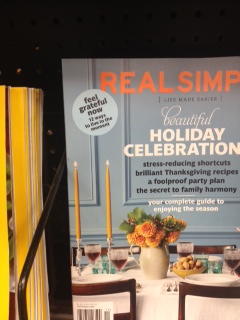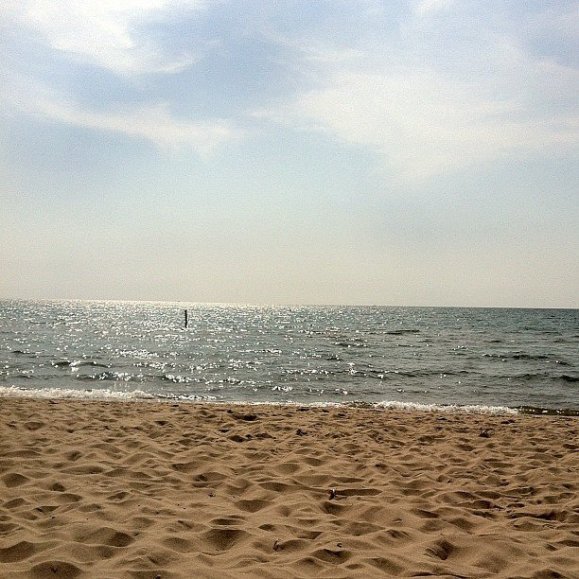SELF
I was raised to be a good soul trapped in an inconsequential body.
The soul was what mattered. It lived on forever, it was judged by a white guy up in the sky, it journeyed to some far-away paradise after death.
The body was merely an imprisonment. “This life is only to determine where you’ll spend eternity,” my father was fond of stating with certainty. After the decision was made, all that’s left is to wait for the body’s expiration date, and perhaps help move that date closer. Breakfast in my house was a giant class of diet Coke and a chocolate-iced doughnut.
“If it tastes good, it’s bad for you,” another favorite phrase from my parents. I remember the first time I bit into a fresh pear, handed to me by a friend’s mother. I was overwhelmed with the sweetness, surprised by the juice and the contrast of soft flesh within tough skin. A few years later, when I tried to lose weight, I ate toast, thinking the bland taste meant it was good for me. All the things my body and taste buds craved—crisp broccoli, fresh berries, raw almonds—had been deemed ‘bad for me’ by my parents’ rule.
It was difficult to reach down to tie my shoes.
In college, my violin instructor banned dairy from my diet and demanded protein (a foreign word I had to research) at each meal. Post-college I began a weekly yoga practiced and, for what felt like the first time, felt my body.
As my body taught me about my self,
As my body changed and my self along with it,
As I changed and the body reflected the difference,
I had to rethink the way I understood my self.
Obviously, everything was so much more interconnected than I had been taught. When I began eating food designed by the Creator rather than the corporation, my relationship with the environment around me changed. As I began to taste food in its particularity instead of as a means to fullness, I also found each person to hold a particularity that had previously gone unnoticed. As my soul moved into my body, I stopped barricading myself so strongly within my intellect. I allowed myself to feel, even when feeling hurt. I stopped being a soul and a body. I became one person.
Which is not to deny my complexity. I don’t think of myself as nothing more than an accumulation of cells. I am a body, but when I slice open my arm there is no confusion that it’s my intelligence seeping out. When I confer within myself, there’s no confusion at hearing multiple voices. I am in relationship with myself. Understanding myself as an integrated unity opened up more freedom within me to be in such a relationship. There are no clearly-defined borders of mind, body, soul; there is only relationships, on-going, ever-building in complexity, differentiating, integrating, including, transcending.
Don’t be misled by my frame. I am a big self.
——————————————————-
THE DIVINE. DIV(I)N(THRE)E.
I’m wary of using the word ‘God’. No one means the same thing by it. It’s often used (and capitalized) as though it’s a name, proper noun. It’s not. It’s a description, just as ‘Spirit,’ ‘Divine,’ or ‘Be-ing’, is. That said, I will use the word, but please, just as I do not want you to put your preconceived stereotypes about ‘white’, ‘women’, or ‘Michigander’ onto me, I do not want you to think you know the essence of this God Being.
Everything is included in God. Everything is transcended, surpassed, gone beyond by God. There is nothing that is not God. Just as your body includes organs such as your lungs, heart, and brain, you are more than the accumulation of your organs. You include all of them, but you also transcend all of them. God includes everything, but also transcends, and from that beyond-place, God calls creation to be more than it is, calls humanity to be more than we are. Why do we cringe to think of the way scripture was used to justify slavery but continue to use it to justify domestic violence, gender inequality, ethnocentrism and exceptionalism?
In some way, a first-century Jewish man embodied everything it was to be human while also embodying everything it is to be God. I do not pretend to understand this. What I do know is that this man prayed, and God responded. Which can be confusing. God responding to God’s own self?
Oh, whispers a warm internal voice, you know what that’s like.
That’s different, another I responds. We aren’t God.
Well then what do you do with imago Dei? Chimes in that snobby theological intellectual that won’t go away, no matter how much the rest of us shun him.
On some level, I’m aware I might be making God into my own image, but I’m not without tradition in doing so, and the company isn’t terrible.
Or maybe it really is the other way around, and my inner relationality reflects something of God’s inner workings. Not that it helps; I still can’t claim any solid understanding of God nor of the way my inner self works.
So I put words to it as best I can with a giant shrug. We could be wrong, the voices agree.
——————————————————-
SELF AND DIVINITY
The best image I have to begin describing any of this is not an image at all. It was something that was barely understood to exist until just a few centuries ago: air.
We tell ourselves that air is all around us, it’s the thing in which we live. What we forget is that there are times the air believes humans to be the thing around it, that we are the thing in which it exists. Which is to say: we inhale.
I had a pastor who once explained that the reason the tetragrammaton—the four-letter Hebrew name for God that we lamely translate as Lord—is unsayable is that it’s actually unpronounceable. “They’re breathing sounds,” he says. He talks about pneuma meaning both breath and spirit. Another friend, also a pastor, likes to say that the answer to the question “Where is God?” is only an inhale and exhale away.
Inside me, that affirming voice resonates warmly. Breath and spirit are connected. God is in all people, even when they aren’t aware of it. Each inhale, the spirit is being lent to us, and with each exhale we return it to the creation. With breath, God is in everyone. And the animals, they breathe. Plants, too, in their way. All the green plants, all the beasts of the earth and all the birds in the sky and all the creatures that move along the ground–everything that has the breath of life in it—holds a piece of God.
At times, God feels far away; I try to get close. I recite from prayer books, I force myself out of bed to church, I taste the bread dipped in the cup. This is all a chasing after the wind, only to eventually discover the wind is held in my own lungs.
I must take care of the spirit that is lent to me with each inhale. To do otherwise, to waste this fragile life breath by breath, is to take the LORD’s name in vain 28,000 times a day.
I have questions about how breathing works. Is my diaphragm pulling air in, or does the air enter thus move my diaphragm? Put theologically, it’s a question of who is initiating: am I inviting God in, or is God entering into me? The answer, as it often seems to be in God matters, might be: Yes.
But I could be wrong.
——————————————————-
SELF AND EVERYTHING ELSE
If God is in others, I must be kind to them. I must see them in their particularity. They carry a piece of God, and I can only have eyes to see if I forget God and any other notions I have of what lies behind the face in front of me.
Animals are included in God, too. I’m not sure what to do with that, but I do have the sense that we are are to take care of them. Genesis agrees with me: ruling over the creatures is God’s first commandment to humanity. I also have the sense that raising them on food they weren’t meant to eat, in group sizes they don’t naturally live in, for the purpose of slaughter and consumption, all does not fall under the category of ‘taking care’.
The rest of the environment, as well. God includes and transcends all. Nothing is an accident; everything is beloved. I share air, breath, and therefore spirit with the tree that blocks my view of the harbor. The tree is inside me: I have no more health to despise it than I do to despise my own breath.
Which brings us back to where we started, as seems to happen when discussing relationships that inter-connect in the dizzying trail of a celtic knot. It’s hard to remember, but my lungs, too, contain breath, hold spirit. I have a hard time remembering this, but I must remember, I must remember: I carry images of the divine.
In ragged breaths,
In tearful sobs,
In shallow panting,
the name of God.
Intentional inhales,
lungs are broad,
Mindful exhales,
the name of God.
This was written for Theology I in Fall 2012. Students were asked to consider the way they understand themselves in relationship to God and others.

